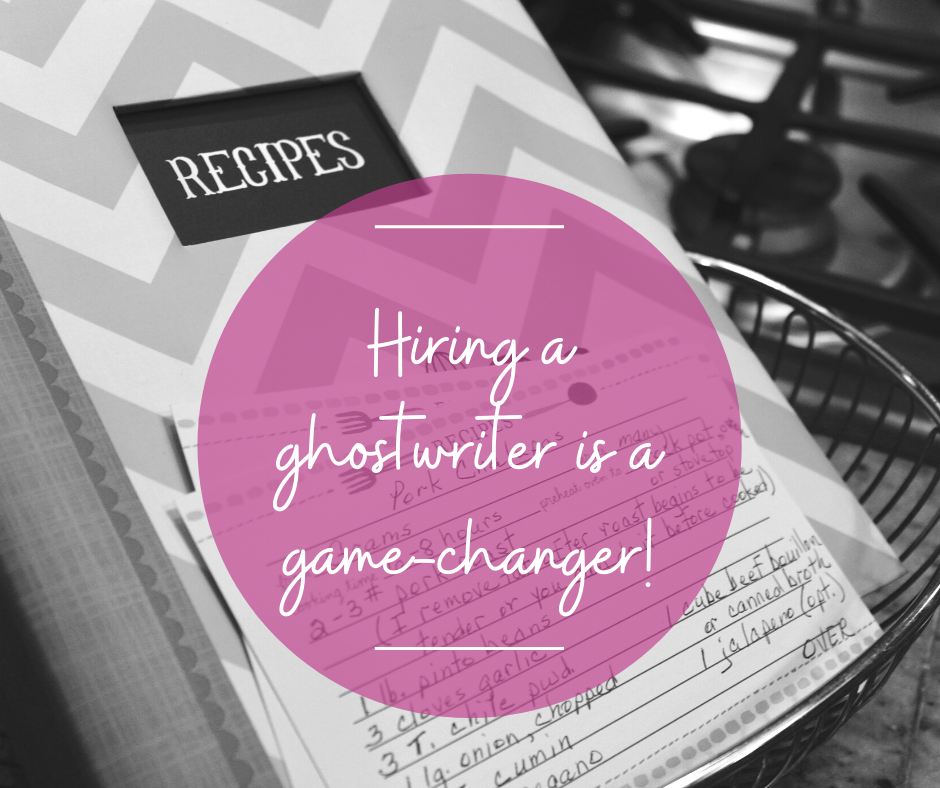Food blog ghostwriting is pretty unknown to those outside of the food blogging sphere and I feel so honoured to be a part of it. As much fun as it is and as rewarding as it is, it’s not without its share of hard work.
Most people still have no idea what any of it means. I’ve learned to come prepared with my patented explanation to the follow-up question people have once they ask me what it is I do.
What exactly is a food blog ghostwriter, anyway?
“You know when you Google “Instant Pot chicken breast recipe” and a list of results show up on that first page? When you click on any of those links, you usually need to read through a post to get to the recipe at the bottom.
The written portion of the post is what I write for my clients. I aim to write in a way that is optimized to rank high enough to land on page 1 of Google’s results. Being able to do this takes a special skill set.”
I’d say it’s high time I start working on my elevator pitch, but you get the idea.

Why do food bloggers hire ghostwriters?
Bloggers want their recipe blog posts to end up on the first page of Google because more clicks and traffic to their blog sites means more money in their pockets from advertising. That’s basically the gist of it.
Some bloggers need support with this for a few different reasons.
- No time to write. Their blogs have grown into a full business and they need to outsource different tasks to free up time to focus on other areas of their business.
- Don’t enjoy writing. Some bloggers just don’t like writing about their recipes so much as creating them. So, why not hand off the parts that are less enjoyable. After all, they’re working smarter, not harder, right?
- Require particular skills. Food writers possess a special skill set that not all freelance writers or bloggers possess. Hiring a quality food blog ghostwriter helps to ensure they’re getting what they need.
What Clients Look For When Hiring Food Writers
If you love to write, freelance writing can be incredibly rewarding. Whether as a side hustle, or a full-time business, it’s a service in high demand that should never be taken lightly.
Food blog ghostwriters should:
- Have strong English language proficiency.
- Know how to write blog posts in a way that is Search Engine Optimized (SEO) and E-E-A-T (Experience, Expertise, Authority, Trustworthy).
- Strong knowledge of keyword research (although, some clients will do their own).
- Write and format blog posts for the web and easy reading.
- Write in a way that mirrors each client’s voice and is reader-friendly.
- A strong ability to work independently and meet deadlines.
- Edit and proofread content to ensure zero spelling or grammatical errors before submitting work for review.
- An interest in cooking and baking of all kinds (Instant Pot, Air Fryer, keto, vegan, gluten-free, etc.).
- Knowledge of various cuisine, ingredients, tastes, aromas, and textures.
- Write with personality and still be succinct. In other words, include lots of valuable information without a lot of fluff.
Clients need to be able to trust their blog posts are in good hands. After all, a blogger puts their heart and soul into their business.
When hiring ghostwriters, they are looking for someone to do the necessary research, write the post, and hand it back to them for publishing. The ghostwriter takes no credit, which is perfect for those who love to write but don’t necessarily want to write their own blogs.

SUCCESS TIPS
Do your research
Get to know your ideal clients. Do you want to solely work with mom bloggers who post recipes for busy families? Do you want to write for someone who focuses on bread? Or Keto-friendly recipes? Maybe just desserts?
Within each area, every blogger has their own voice. You need to get to know your potential clients as people first. Check out their social platforms, watch their videos, read their posts. Get to know their voice and who their target audience is.
Be flexible
As someone who has a passion for writing, your natural gifts and instincts will come into play. Sometimes the hardest part about writing for someone else is having to put some of that aside in order to make it work for your client. Remember, you’re writing as the blogger not yourself.
Make your writing reader-friendly
A blogger’s main goal is to speak to their audience in a way that ensures their readers will have success when making their recipes. They are sharing a bit of who they are and what they can do with their community. We all know that most people will skim past the post to get to the recipe card. It’s for this reason that as ghostwriters we need to write in a way that is reader-friendly. These days, we also need to think mobile-friendly too!
Scrolling through paragraphs isn’t a good time. Short paragraphs of 2-3 sentences and bullet points come in handy.
How to start your food blog ghostwriting business
5 must-haves
- A laptop and reliable Wi-Fi.
- Sample work/portfolio.
- Templates for both a proposal and contract.
- Decide your rates (packages, per word, per post).
- The gumption and drive to reach out to your first client!
From there, word of mouth can easily take over. Potential clients are usually (not always) more inclined to take a recommendation from a fellow food blogger than they are taking a chance on someone they don’t know.
The food blog world is small and if you produce quality work, with professional and courteous service, you’ll be well on your way to building an incredible business for yourself!




